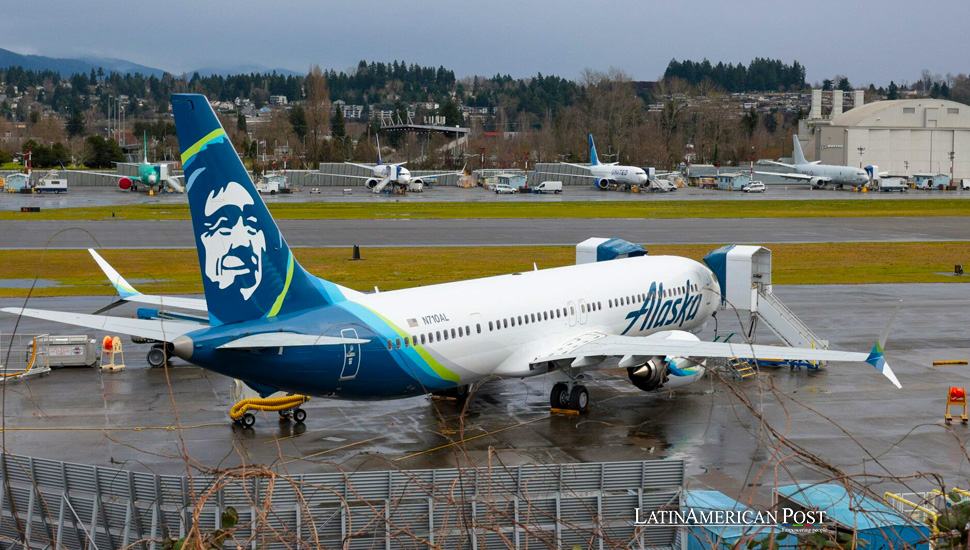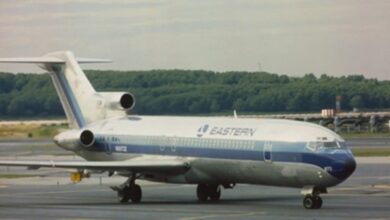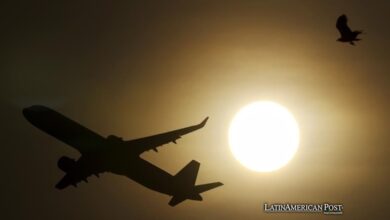Panama Reinstates Boeing 737 MAX9 in a Turn in Aviation Safety

Following a thorough review by Panama’s Civil Aviation Authority, 19 Boeing 737 MAX9 aircraft are cleared to resume operations, signaling a significant step in restoring confidence in aviation safety.
Panama’s Civil Aviation Authority (AAC) has authorized the return of 19 Boeing 737 MAX9 aircraft to service, a significant development for the aviation industry. This decision comes after the planes were grounded on January 6 due to an incident involving a similar model from Alaska Airlines. The move represents a pivotal moment in the ongoing saga of the Boeing 737 MAX9, reflecting the continuous efforts to ensure aviation safety and restore passenger confidence.
Supervised Return: AAC’s Satisfactory Review Process
The reintroduction of these aircraft follows a “satisfactory” supervision and review by the Aeronautical Inspectors of the AAC, as indicated in a statement from the Panamanian aviation authority. Two additional aircraft from the same fleet, owned by Panama’s flagship carrier, Copa Airlines, remain supervised and will re-enter service once they meet the accepted protocol.
Anticipating the regulatory clearance, Copa Airlines announced plans to gradually resume full flight schedules with its 21 Boeing 737 MAX9 aircraft. The airline had begun reactivating flights canceled due to the grounding, aiming to return to a full schedule by January 28. This announcement was a positive development for Copa Airlines, which had experienced significant operational disruptions due to the grounding.
The grounding of these aircraft was a response to an incident on January 5, where an Alaska Airlines 737 MAX9 aircraft lost part of its fuselage mid-flight. This incident had a notable impact on Copa Airlines, affecting over 20% of its operations, as explained by the airline’s CEO, Pedro Heilbron, on January 16.
Stringent Inspection Process: FAA Guidelines and AAC Supervision
Receiving the green light for all 21 temporarily suspended aircraft to resume operations was contingent upon completing a rigorous inspection process. This process was conducted under the strict guidelines of the United States Federal Aviation Administration (FAA) and involved professional technicians from Copa Airlines, adhering to the highest quality standards. The supervision of Panama’s AAC played a crucial role in this comprehensive safety review.
The suspension of the 21 aircraft came in the wake of an FAA directive that affected 171 airplanes operated in the U.S. and other countries. The Boeing 737 MAX9 has been under intense scrutiny worldwide, with Cirium, an aviation analytics firm, reporting that there are 215 MAX9 aircraft in service globally.
Copa Airlines’ commitment to modernizing its fleet is evident in its 86 Boeing 737 MAX aircraft orders since 2015. This modernization plan is part of the airline’s broader strategy to maintain a state-of-the-art fleet that meets the highest safety and efficiency standards.
The reinstatement of the Boeing 737 MAX9 in Panama marks a turning point in the aircraft’s troubled history. The comprehensive review and subsequent clearance to resume operations reflect the rigorous standards and protocols that aviation authorities and airlines must adhere to, ensuring the safety and security of passengers and crew. It also signifies the resilience and adaptability of the aviation industry in responding to safety challenges.
Case Study in Safety Management: Lessons from Panama’s Development
This development in Panama serves as an essential case study in aviation safety management. It highlights the critical role of regulatory oversight, the importance of thorough technical inspections, and the need for transparent communication between aviation authorities, airlines, and the public. The decision to ground and reinstate these aircraft underscores a commitment to safety that is paramount in the aviation industry.
Looking ahead, reintroducing the Boeing 737 MAX9 into commercial service is a cautious yet optimistic step toward normalcy in aviation operations. It reassures passengers and stakeholders that safety remains the utmost priority and that the lessons learned from past incidents are being diligently applied.
Also read: Brazil’s Gol Airline Files for Chapter 11 Amid Financial Strain
The return of the Boeing 737 MAX9 to the skies over Panama is more than just a resumption of services for Copa Airlines. It represents a broader commitment to aviation safety and reliability, a testament to the collaborative efforts of regulatory bodies, airlines, and industry professionals. As the aviation industry continues to navigate the complexities of aircraft technology and safety, this event marks a significant milestone in the journey towards safer skies.




